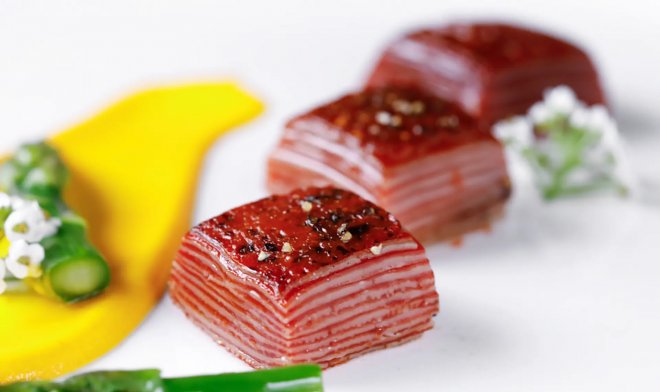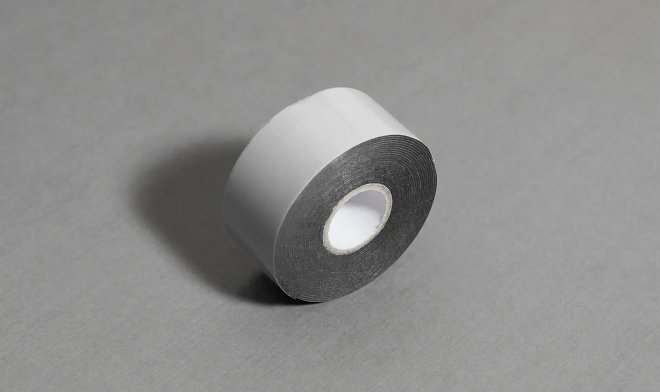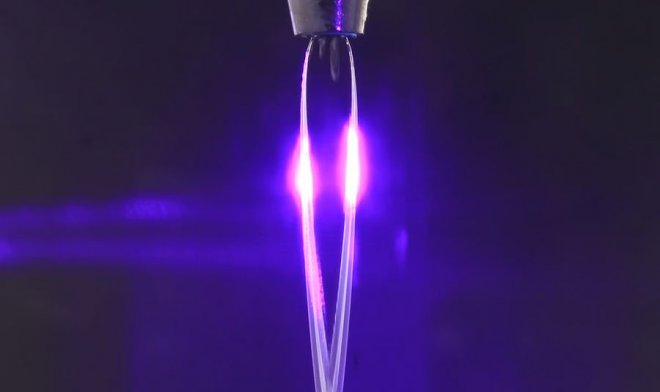Steakholder Foods, which grew out of Israeli startup MeaTech 3D, has announced a public tasting of synthetic wagyu beef for later this year. It is reported that they have managed to produce an analog of the “omakase” variety that surpasses the original in all parameters. But the main thing is that such synthetic meat is actually meat, and its properties can be varied to suit any needs.
The technology is based on the creation of “bioinks,” a semi-liquid material that can be filled into a 3D printer to print the desired structure. Biocornyls are made up of muscle fragments and fat cells grown from an animal’s stem cells. That is, it is a complete beef, initially separated into components for ease of use in 3D printing.
Steakholder Foods says it can not only reproduce the characteristic marble pattern of wagyu, but also make the meat even better. For example, they can achieve a perfect distribution of meat and fat in each piece. Or, on the contrary, to increase the nutritional value of the meat, to make it more beautiful, to adapt the appearance to create a new dish. Instead of searching the cow carcass for a suitable piece, the chef of the future will set a program for the 3D printer and immediately get what he is looking for.





